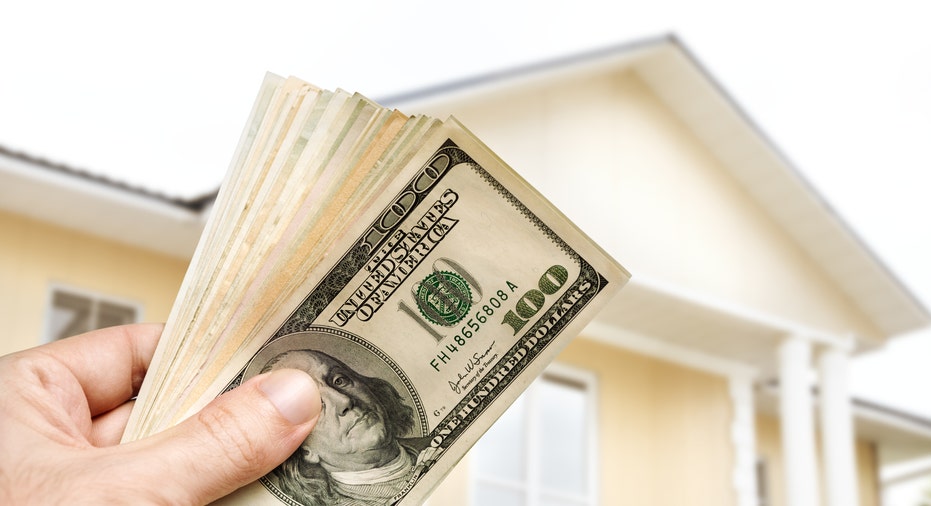How Cash-Out Refinancing Works And When To Use It
Oct 12, 2022 By Susan Kelly
Paying off a mortgage is a fantastic investment since it increases your ownership stake in the house. However, you can get to your equity anytime, not only when you've paid off your mortgage or sold your property. Cash-out refinancing allows you to access that equity as cash and apply it against the principal of your mortgage.
What's Cash-Out Refinancing?

With a cash-out refinance, you may exchange your current mortgage for a larger one and use the equity you've built up in your house to get a lump sum. The money can be used to pay off high-interest credit card debt to invest in a rainy-day fund.
The Procedure of A Cash-out Refinancing

Simply replacing your old loan with a new one for the same amount, often at a lower interest rate, for a shorter loan period, or both is the method for a cash-out refinance, comparable to a rate-and-duration mortgage refinance. Cash-out refinancing allows you to accomplish this and take a lump amount from your home's equity.
"Cash-out refinancing is favorable if you can cut the interest rate on your primary mortgage and make appropriate use of the cash you take out," says Greg McBride, CFA, chief financial analyst at Bankrate. Let's imagine the value of your property has increased to $400,000, and the amount still owed on your mortgage is $100,000.
Tips For Getting Ready For A Cash-Out Refinancing
You may get ready for a cash-out refinancing by following these steps:
Determine Lender Minimums
Various mortgage companies have different minimum credit score criteria for cash-out refinancing, but generally speaking, the higher your score, the greater your chances of getting approved. Other common restrictions include having at least 20% equity in your property and a debt-to-income ratio below a specific proportion. Consider the prerequisites while you investigate potential solutions.
Determine The Precise Quantity
If you're thinking about cash-out refinancing, you need money for something specific. Knowing how much you need to borrow will assist you in avoiding taking on more debt than is necessary.
If you want to use the money to pay off debt, you should tally up how much you owe on all of your various loans and credit cards. If the money goes toward repairs or upgrades, it's a good idea to talk to many contractors to acquire price quotes on the work and supplies ahead of time.
Apply With Your Info Ready
Get your income, assets, and debts in order before applying for a loan, and then shop around for the best rate and terms you can find. Bear in mind that the lender's evaluation of your application may need the submission of extra paperwork.
The Benefits And Drawbacks of A Cash-Out Refinancing
Before committing to one, you should weigh the benefits and drawbacks of a cash-out refinance.
Pros
- Most borrowers refinance to lower their interest rates, and this is also a rationale for cash-out refinancing because a more significant loan means higher interest payments.
- The interest rates on mortgage refinancing are often lower than on personal loans or credit cards, making cash-out refinancing a cheaper source of financing. This might be a great option even with the closing charges when you require a lot of cash.
- Cash-out refinancing might improve your credit score if you utilize the money to pay down existing debt. The ratio of your outstanding debt to your total credit limit, known as credit usage, is a significant component of your credit score.
Cons
- As a matter of thumb, refinancing is the best way to improve your financial status and secure a reduced interest rate. Refinancing with cash out might be a bad idea if it would raise your interest rate.
- Lenders may allow you to take out as much as 90% of your home's equity before requiring you to pay private mortgage insurance (PMI) until you've lowered your equity to below 80%. That might increase your interest payments over time.
- Be wary of using a cash-out refinance to consolidate debt to extend payment across decades when you could have paid it off far sooner and at a lower overall cost without doing so.
Is It Time To Consider A Cash-Out Refinance?
For many consumers, a cash-out refinance the best option. These days, mortgage interest rates are some of the most competitive available. Lenders assume less risk since they have collateral in the form of your property so that they may offer you competitive interest rates. This is particularly true in the current low-rate climate. Therefore, cash-out refinancing is a low-cost option for covering costly outlays.








